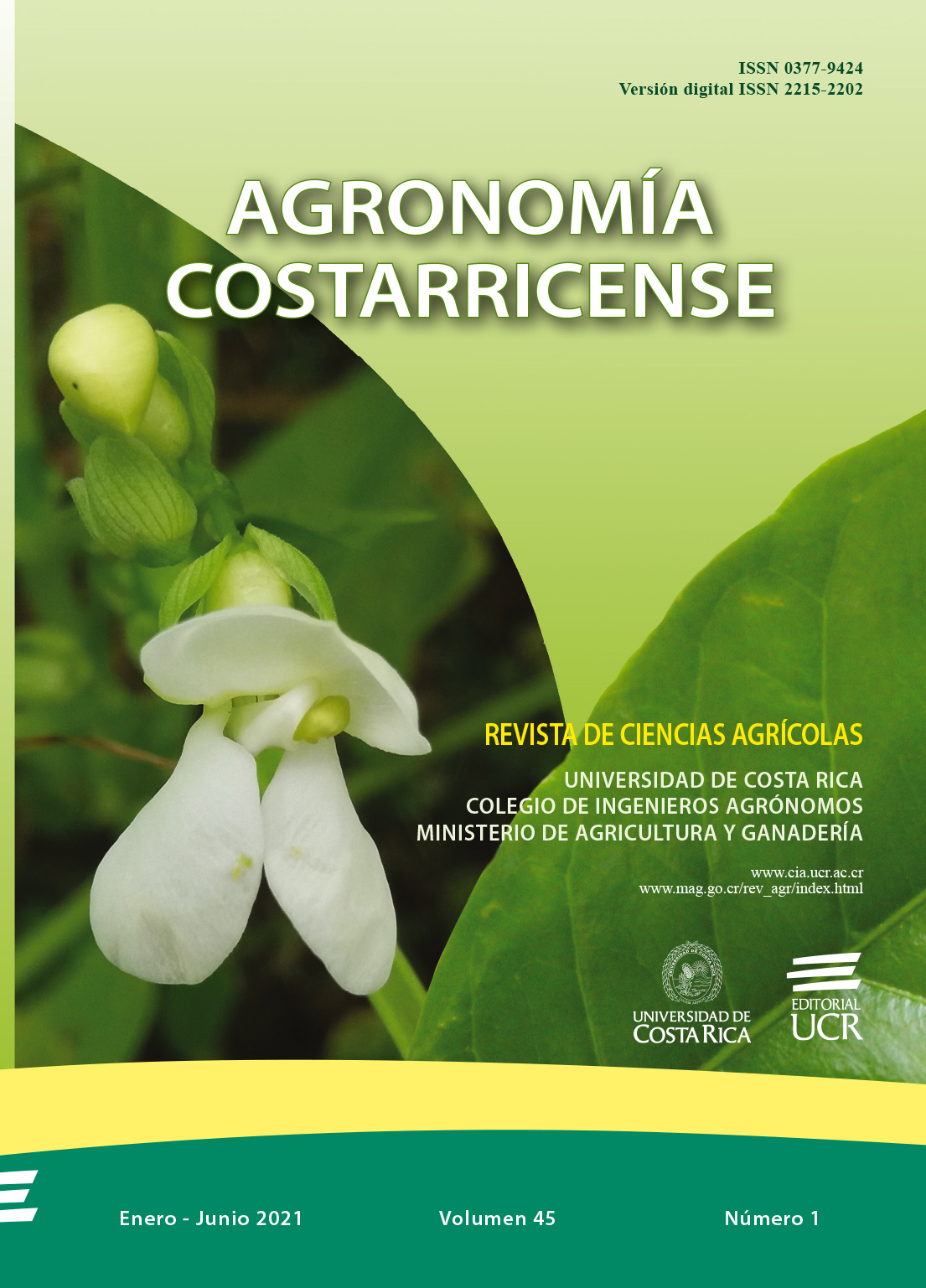Abstract
Introduction. Laboratories dedicated to the in vitro production of plants experienced an affectation in their work, due to the presence of fungal contaminants or bacteria on the explants, a situation associated with the presence of arthropod pests such as mites. Objective. To identify the major species of mites and the association of these organisms with contaminants such as fungi in different commercial plant tissue culture laboratories in the Central Valley of Costa Rica. Materials and methods. Vitro plant samples, from various laboratories, with contamination problems caused by mites were taken to the Acarology Laboratory of the University of Costa Rica, for the respective identification of the mites and fungi associated with these arthropods. The presence of mites on the explants was verified and they were identified with the respective taxonomic keys. Fungi associated with the mites were isolated in PDA culture medium and identified with the help of specialized taxonomic keys. Results. Mites found were identified as Siteroptes reniformis, Tyrophagus putrescentiae, Tarsonemus bilobatus and T. fusarii. Tyrophagus putrescentiae was the major contaminant species (76% of the analyzed samples). Fungi Mucor sp., Penicillium sp., Leptosphaerulina sp., and Cladosporium sp., were linked to the species T. putrescentiae, whereas Nigrospora oryzae was the only fungus found with S. reniformis. Conclusions. Mites are associated with one or more fungi depending on the species found. All mite species have the ability to spread fungal hyphae or spores, either by carrying them onto the surface of their body or through specialized structures. An increase in the levels of contamination of the in vitro cultured explants could be associated with the presence of mites.


